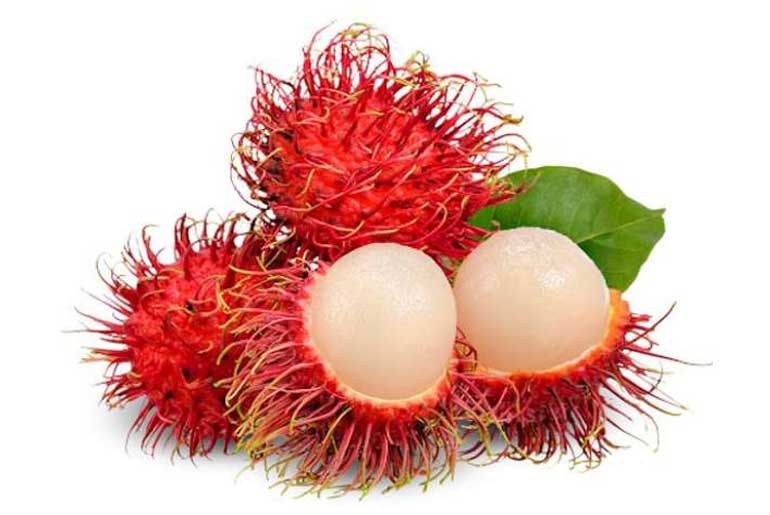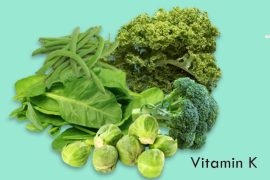Rambutan is a tropical fruit that hails from Southeast Asia but is now cultivated in various tropical regions worldwide. Its distinctive appearance makes it easily recognizable, with a spiky and hairy outer skin that encases the delicious flesh within. The fruit typically ranges in size from that of a golf ball to slightly larger, and its skin can come in various colors, such as red, yellow, or green, depending on the specific variety.
The inner flesh of the rambutan is the real treasure, known for its sweet and juicy taste that combines elements of lychee and grape. It’s a delightful treat that’s commonly enjoyed fresh as a snack or dessert. Beyond its delectable flavor, rambutan offers a range of nutritional benefits. It is low in calories, making it an excellent option for those seeking to manage their weight. Additionally, it boasts a noteworthy fiber content, promoting gut health by facilitating digestion and nourishing a thriving gut microbiome.
Here are some of its key benefits:
- Rich in Fiber: Rambutan is a good source of both soluble and insoluble fiber. Insoluble fiber adds bulk to your stool and helps prevent constipation by promoting regular bowel movements. On the other hand, soluble fiber serves as food for beneficial gut bacteria, promoting a healthy gut microbiome.
- Low in Calories: Rambutan is a low-calorie fruit, making it a great choice for those looking to manage their weight. The combination of low calories and high water and fiber content can help you feel full, reducing the chances of overeating.
- Vitamins and Niacin (Vitamin B3): Rambutan contains essential vitamins like niacin (Vitamin B3), which plays a role in improving metabolic processes and supporting the body’s defense systems. These vitamins contribute to overall health and well-being.
- Fat-Soluble Vitamins: Rambutan also contains fat-soluble vitamins A, D, E, and K, which are important for various bodily functions and can boost the immune system.
- Vitamin C: This fruit is a good source of vitamin C, known for its antioxidant properties. Antioxidants help combat oxidative stress and support the health of white blood cells. This can aid in preventing premature aging and keeping your immune system robust.
- Geraniin: Rambutan’s rind contains a polyphenolic compound called geraniin, which has antioxidant properties. Geraniin may help restore biomarkers of oxidative stress, balance glutathione levels, and enhance serum antioxidants.
- Potential Metabolic Benefits: Ellagitannin geraniin, found in rambutan’s rind, has shown potential effectiveness against metabolic dysfunction. It may help mitigate anomalies caused by a high-fat diet, which can be beneficial for weight management and overall health.
Rambutan’s unique characteristics extend to its potential health benefits. It is not only a flavorful addition to your diet but also offers the advantage of supporting gut health, aiding in weight management, and providing essential nutrients. Whether you’re savoring its sweet flesh straight from the fruit or incorporating it into culinary creations, rambutan is a tropical gem that combines taste and nutrition in a delightful package.
Incorporating rambutan into your diet can be a flavorful and nutritious way to support your gut health, aid in weight loss efforts, and benefit from the various vitamins and antioxidants it offers. However, as with any dietary changes, it’s essential to consume rambutan in moderation as part of a balanced diet to reap these benefits.
Disclaimer:
The information contained in this article is for educational and informational purposes only and is not intended as a health advice. We would ask you to consult a qualified professional or medical expert to gain additional knowledge before you choose to consume any product or perform any exercise.







